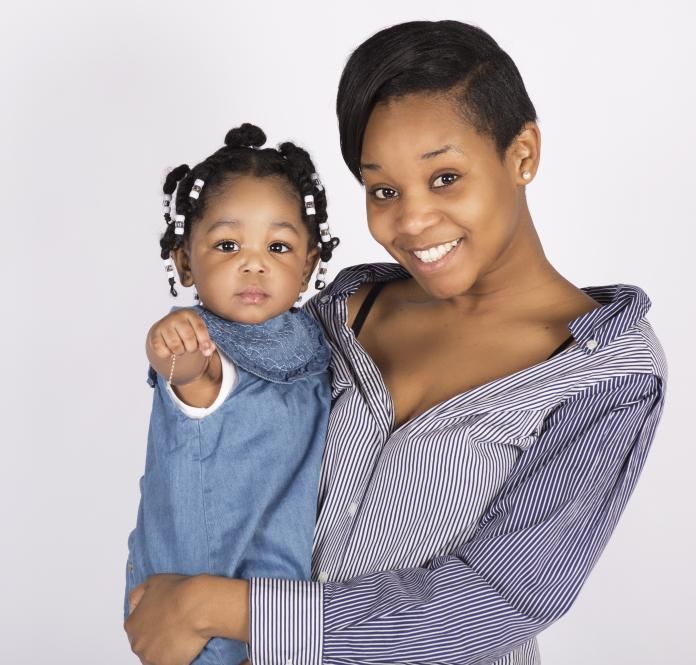In early March 2023, our Amplifying Maternal Voices project held the first National Perinatal Mental Health Conference led by the Foundation since 2018, with the theme of ‘Breaking Barriers’.
Why Breaking Barriers?
We know that one in five women experience mental health problems during pregnancy or after giving birth. However, 55% of women who disclose their experience of mental health problems are not referred to any support services or given advice about organisations that can help.
There are barriers for women to getting appropriate help when they need it. It’s these women – including Black mothers, young mothers and those with experience of seeking sanctuary, who experience more barriers than others that we need to hear from, and to find solutions to break down the barriers to timely mental health care.

Highlights from the Conference
- At the conference, we explored a range of factors that can affect women’s experiences of getting help during pregnancy and after birth, including issues around culture, religion, language and transport.
Laura Richmond presented the realities for mothers of using public transport to get care:
“Essentially, the challenges of transport, parenting and mental ill-health intersect to create a situation that can be unbearable. There are barriers, and this means that mothers sometimes miss appointments with maternity services and health services. As a result, they are labelled as ‘failing to engage’ or ‘failing to show up’, simply because they just physically can’t show up.”
- Professor Jacqueline Dunkley-Bent highlighted the key statistics showing who the ‘seldom-heard’ mothers are and what might affect their outcomes. She emphasised putting an end to further ‘preventable harms’ by improving communication with families, adapting our practice to remove these barriers, and continually thinking about what women need and want in their perinatal journey.
- Dr Mulji talked about language barriers. She helped the audience to experience first-hand how it would feel to need an emergency caesarean section and have conversations in a language we didn’t understand. This is the experience for so many women who are going through the perinatal experience while seeking sanctuary in the UK.
- Shavarnah Joseph shared her personal story of young motherhood and experiencing mental health problems shortly after the birth of her daughter. She shared the challenges of social isolation, housing instability and stigma that she experienced throughout her pregnancy and beyond.
- From the Mental Health Foundation, Miles Carabine explored fatherhood, single parenthood and stereotypes.
- A key focus on religion and culture was highlighted, as delegates later said how this allowed them to think about an aspect of women’s experience that is rarely discussed. The valuable pragmatic strategies and community-led initiatives can integrate religious-based practices with health and social care support for women and their families, with both aspects of a women’s experience.
The Young Mums Connect programme offers a series of workforce development modules for health and social care teams across England, in addition to the peer-based support direct to young mothers in their local communities. The Young Mums Connect team led a breakout session focusing on the experiences of young mothers and the barriers they often face to accessing timely support. The themes of the breakout session will be continued through more learning and discussion with health and social care teams in the months ahead.
What’s next for Amplifying Maternal Voices
The sector recognises the need for tailored, high-quality care that is available to all women. We know that delays in giving appropriate care can have long-lasting effects on a mother, her child and the whole family.
The Amplifying Maternal Voices project is in the process of co-creating an Engagement Toolkit that will guide local services and grassroots organisations with practical steps on how to amplify seldom-heard voices in their service planning, commissioning and engagement strategies. This toolkit is being developed as our partners, the Maternal Mental Health Alliance, continue to test concepts, designs and content with their network across England. They are working especially closely with local contributors who already do so well to reach young mums, mothers seeking sanctuary and other seldom-heard maternity groups. The toolkit will be launched in early 2024.
Autumn 2023 will see the delivery of a series of ‘listening events’, bringing together service leaders, stakeholders, and the voices of lived experience. These mini-events will allow for sharing and aim to identify further solutions to the best practice in breaking barriers. Practical strategies and real stories will be compiled for wider sharing, with a view to keeping this conversation going and building momentum for increasing positive change. The Amplifying Maternal Voices project is being evaluated, and the findings will provide further recommendations for developments following the current project activities.
As Jayde Edwards shared in the Young Mums Mental Health breakout session, “We are not ‘hard to reach’, and breaking barriers is possible.”
Amplifying Maternal Voices (AMV) project
The AMV project spotlights mothers' maternal mental health experiences from seldom-heard communities.
Find out more about our Amplifying Maternal Voices project
Related content
A-Z Topic: Parenting and mental health
Being a parent with a mental illness can be hard. But with the right support, you can be a good parent while managing your mental health.
A-Z Topic: Postnatal depression
Postnatal depression is a type of depression many people experience after having a baby. It’s not the same as the ‘baby blues’: it needs treatment so you can recover.